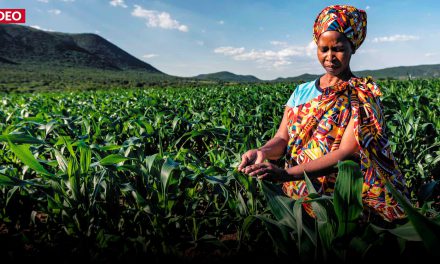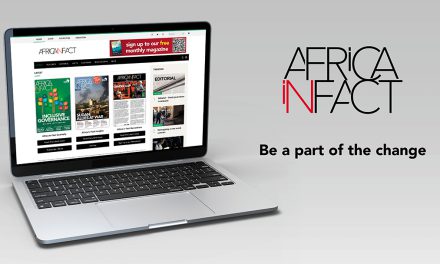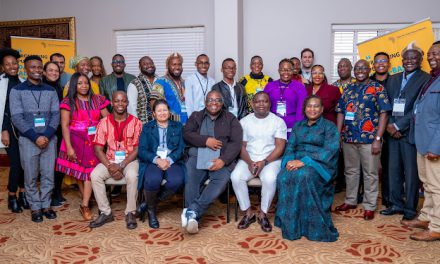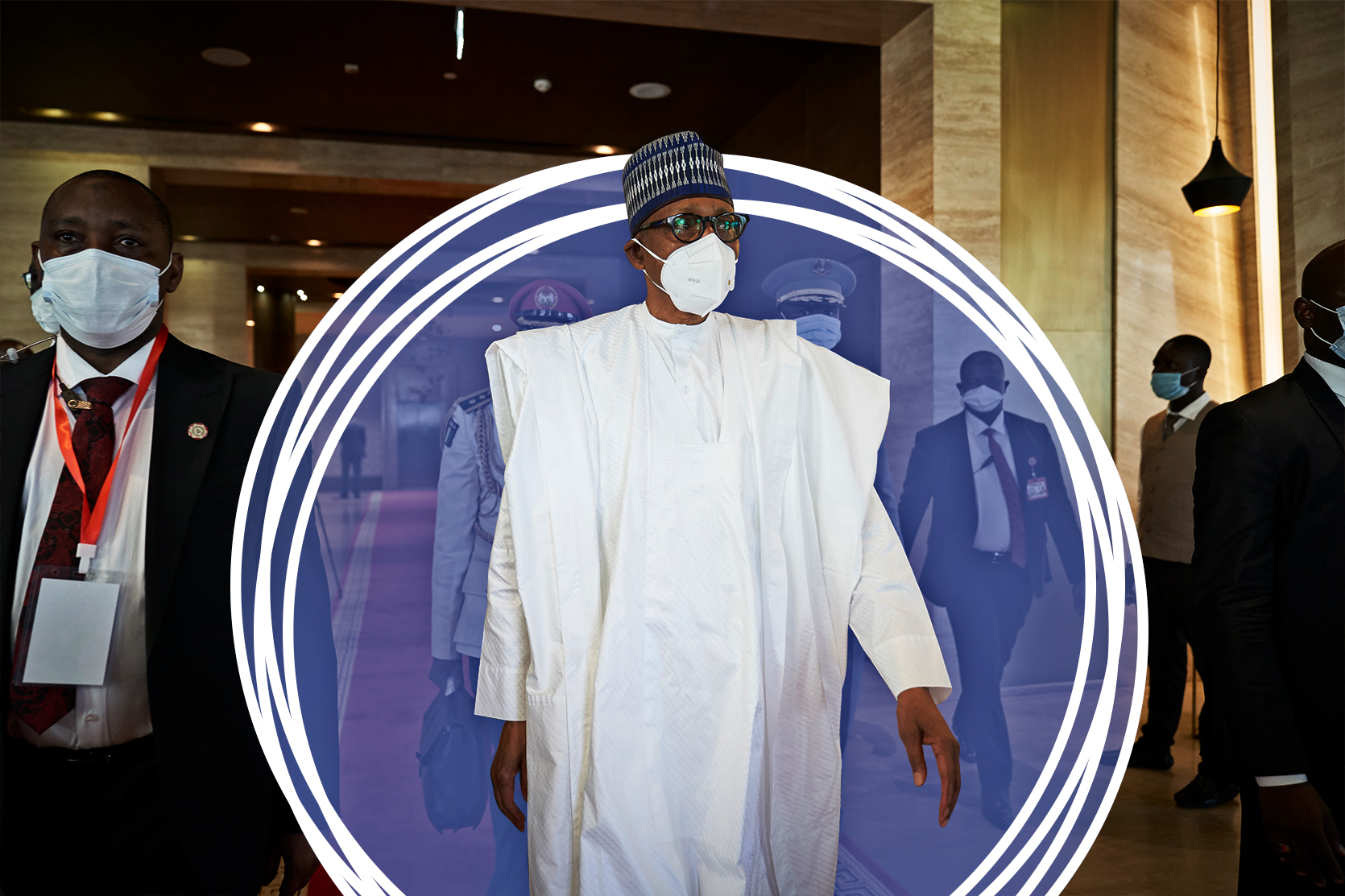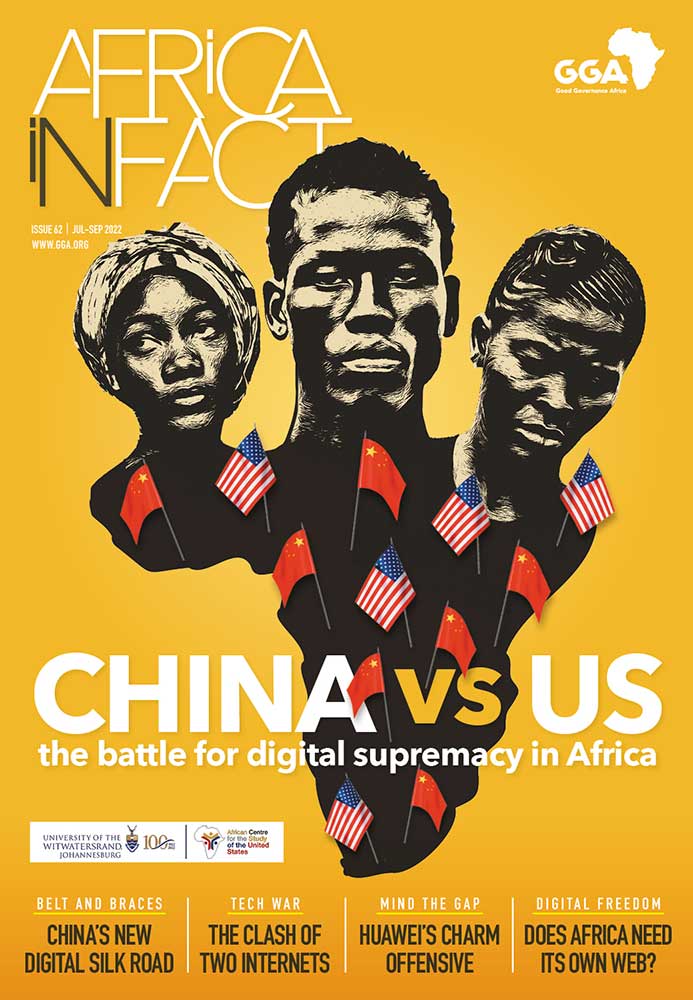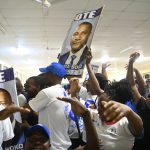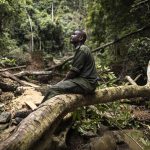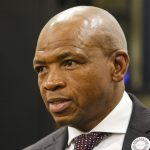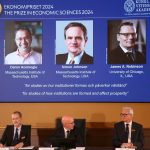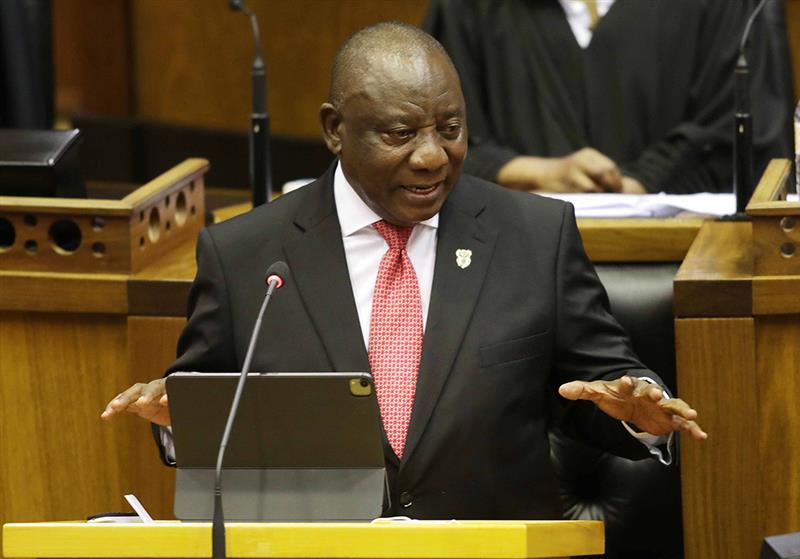
South African president Cyril Ramaphosa during his 2022 SONA address.
Good Governance Africa (GGA) has studied the president’s SONA 2022 speech from last night. The speech includes some laudable attempts at addressing the ANC’s lamentable record in governance over the past year and in the longer term. Some of these are noted in our analysis of the speech, outlined below. However, we note that the speech also fails to address some serious issues, or is evasive as regards other issues.
GGA operates several research and information programmes with the aim of providing information and enhancing governance. These are our: Governance Delivery and Impact (GDI); Natural Resource Governance (NRG); Human Security and Climate Change (HSCC); and Governance Insights and Analytics (GIA) programmes. In line with these programmes, we have compiled observations about SONA 2022 from our research team with the aim of identifying positives and providing constructive indications of issues that need to be addressed.
Overall, the speech’s lack of clarity and specificity in setting the tone for the country’s governance year in some key areas of our country’s life is deeply worrisome.
While the president recognises that the economy is in dire straits, he does not draw at all from the United Nations University World Institute for Development Economics Research (UNU-Wider) working paper released shortly before SONA, which indicates in great detail the devastating impact of state capture on the economy and especially the poor. Perhaps most striking of all is that private sector investment, which the president recognises as critical to providing job-creating growth, has plummeted in the past decade.
Corruption and mismanagement
The president acknowledges the findings from the Zondo Commission, which have exposed the severe extent of state capture and related corruption that have pervaded the ANC’s approach to government. We maintain that corruption remains one of the greatest impediments to South Africa’s growth and development, as it disincentivises investment through undermining the state’s credibility and ability to honour contracts.
Positive highlights from his speech include:
- It is the first direct public statement from the President acknowledging the first two parts of the Zondo Commission’s report.
- It admits that ‘state capture’ is a fact of the ANC’s past approach to government.
- The president commits his party to a plan of action in response to the Commission’s recommendations no later than 30 June.
- The president says that measures will be introduced to strengthen systems to protect whistle-blowers.
- He commits the ANC to holding individuals and companies accountable.
- He says that special courts to expedite corruption cases will be established.
However, the speech leaves many serious issues unaddressed:
- The President indicates that members of the criminal network that infiltrated government and captured the state will be swiftly brought to justice. However, the statement appears to direct the focus more to external parties, such as companies, and evades the issue of the party’s internal responsibility for corruption. Thus, the speech does not specifically identify implicated political heads or party members, using the generic term “individuals”. Overall, his approach seems to imply that the ANC was infiltrated by a transnational crime syndicate, while the Zondo reports have already clearly identified state capture as a serious internal matter. This distancing is incongruous with the reality that the extent of the crime is clearly internal.
- The president will need to act to ensure impartiality when prosecutions are called for. The indications are that some of his own political allies have been complicit in the erosion of the state. He will need to ensure that the party clearly articulates clear measures to improve the institutional support and funding for the investigations and prosecutions that need to follow the revelations of the Zondo Commission’s reports, including the third part, as yet unpublished, which is likely to implicate the party’s own former president as a major player in state capture.
- The president’s SONA 2022 speech does not fully acknowledge the extent to which his own party has been an enabler in the hollowing out of the legal system. Indeed, it sometimes sounds as if he is talking about events “out there”, over which he and his party have no control. And, certainly, there is no mention of the recent farcical Judicial Services Commission process which sought to appoint a new chief justice, and which saw candidates subjected to smears, innuendo and aggressive questioning that did not serve the purpose of the process.
- The president faces serious challenges in resolving the leadership crisis within the criminal justice system. An exact timeline for appointing a new head of the Investigating Directorate and the operationalisation of the special courts is needed.
SONA 2022 uses stronger language as regards the findings of the Commission, but the tone is one of managing the fallout for his party rather than addressing the most serious political issues which this country has faced in decades. The speech does not significantly advance beyond that to specific actions and timelines. That said, we acknowledge that the full impact of the Zondo Commission can only follow its publication of its final report on 30 June.
Article links:
https://gga.org/making-zondos-findings-count-is-not-governments-job-alone/
Data and Governance
As indicated above, SONA 2022 lacks detailed and focused attention to available data and makes no mention of the importance of better data acquisition and management to effect proper governance. You cannot manage what you cannot measure. South Africa is in the midst of the fourth national census of its democratic era. However, the president’s speech makes no mention of this critical data collection process, despite the tangible effect which adequate data must have in determining critical governance outcomes.
- In simple terms, governance determines who gets what, when and how. Within this framework, census data plays an important role in informing policymakers and the public at large of which parts of the country lack adequate service delivery provision (and to what extent).
- Ultimately, without updated census data it becomes challenging to make accurate investment decisions in the building and maintaining of critical infrastructure. This includes but is not restricted to education and public healthcare facilities, particularly in rural and underdeveloped areas.
- The SONA 2022 does not recognise important economic research recently published by UNU-Wider (a team led by Ricardo Hausmann and others). The research includes a treasure trove of data and insights that could have been incorporated to inform better decision-making. For example, private sector investment has plummeted since 2008, adversely impacting the sector’s ability to create jobs. It is important to note that that date coincides exactly with the appointment of Jacob Zuma as ANC and country president. His rule was supported for more than a decade by a parliament that has been found by the courts to have abrogated its responsibility to hold the executive in check. The ANC’s internal processes also failed to do so. The president’s speech makes no acknowledgement of this.
- The rising rate of unemployment is apparent, despite the promises of job creation and the impacts of the Covid-19 pandemic. Here are some relevant figures:
| Q3 Unemployment rate 2021: 34.9% |
| Q3 Unemployment rate 2020: 30.8% |
| Q3 Unemployment rate 2019: 29.1% (pre-Covid) |
| Q3 Unemployment rate 2018: 27.5% |
| Q3 Unemployment rate 2017: 27.7 |
- We therefore urge the president to ensure that his party and government place greater focus on the need for accurate statistics, including the census. A more proactive approach to speedily ratifying the African Charter on Statistics – a process which has been slow despite the charter receiving preliminary cabinet approval in September 2015 – would also speak directly to the president’s emphasis on reducing “red tape” within the government at large.
- Overall, there needs to a more empirical and evidence-based approach to policies and targets.
On security
In the speech, the president acknowledges the recently published report of an expert panel led by Professor Sandy Africa into the civil unrest in July last year. The report paints a “deeply disturbing picture” of the capabilities of our security services and coordination structures and found that cabinet should take overall responsibility for the events which occurred.
- It is a serious concern that this year the president articulated a complete change of narrative around the causes of the July riots as compared to the one offered last year. At the time, he and others in government indicated that an “insurrection” was attempted. In SONA 2022, however, he claims that poverty and inequality were the main causes of the violence.
- The president makes no mention of prosecutions against those responsible for inciting the violence, which must include members of the ANC itself. Successful prosecutions against those responsible are critical to deterring potential future efforts to destabilise the state and must be prioritised, regardless of political sensitivities.
We note that the president promises to fill critical vacancies and enact leadership changes within the State Security Agency (SSA) and crime intelligence, as well as to develop a new national response plan to address weaknesses identified in the report. However, strengthening the country’s intelligence capabilities will require more than leadership changes.
- Systemic issues identified in the 2018 High Review Panel on the SSA, such as its politicisation, resource abuse, and the need to refine core mandates, have still yet to be adequately addressed.
- Similar issues have been flagged for years, and even decades in the case of the intelligence services, to no effect. The ANC’s failure to pay attention to such issues contributed significantly to the devastation caused by the July riots, which might otherwise have been altogether avoided.
On climate change
The president acknowledges recent flooding in certain provinces and drought in other areas of the country as effects of climate change. He also reiterates South Africa’s commitment to the Paris Climate Agreement. However, the reiteration of this commitment remains at odds with the government’s continued investment in the upstream gas industry and reluctance to phase out coal.
Moreover, the president’s speech seems to paint a false dichotomy between climate change commitments and economic competitiveness. As GGA has argued, the development of clean energy technologies and green industrialisation is an opportunity for economic growth and dynamism and not a tradeoff.
Eskom and the country’s power supply
In the 2021 SONA speech, the president noted that unreliable electricity supply was a threat to the country’s economy. This was again a key point in his speech last night.
Again, he acknowledges that the fragility of the electricity system continues to disrupt businesses and negatively impact the lives of all South Africans and has further crippled South Africa’s economic development. Eskom was a key conduit for state capture, as indicated by the Zondo Commission, but it is the state’s policy missteps that have also resulted in ageing and poorly maintained power stations.
On a positive note, the president points to several new energy generation projects that will bring additional generation capacity of 4,000 megawatts online over the next few years.
- A major part of this new supply will be 2,600 MW from Window 5 of the renewable energy programme (REIPPP). The preferred bidders were apparently announced in October 2021. The president acknowledges the need to transition to renewable energy sources and ensure a low-carbon economy. However, he and his party need to commit to timelines and communicate them to the public to enhance transparency and accountability.
- The president says he has put together a Presidential Climate Finance Task Team to mobilise resources for a just transition. Evidently, efforts have been made to kick start the energy transition. However, the task team will need to show how it intends to implement the R130bn support package deal negotiated at COP26 in order to assist South Africa to decarbonise and reduce the country’s dependence on coal.
- The president briefly mentions the creation of an independent transmission grid operator but does not mention the legislation (the Independent Systems and Market Operator Bill) behind such a move, which urgently needs to gain traction.
Overall, GGA notes that the ANC’s long-term history is bound up with a hostile attitude to the private sector, corruption, cadre deployment and incompetence in execution of policy. These factors are interconnected and are the ultimate sources of the ANC’s governance failures, only some of which Ramaphosa recognises.
Addressing these issues, then, is key to getting things right.
It is encouraging that Ramaphosa has, for the first time in the ANC’s history, argued that government’s role is to facilitate conditions for a growth economy, not to “create jobs”. But he will have to engage with the private sector in a constructive, partnership way, as well as face down a visceral hostility to business within his own organisation. Moreover, the danger of continuing corruption in relation to public-private partnerships has to be anticipated and addressed in specific, clear protocols in accordance with existing law.
Corruption has been a factor in ANC failures of governance for decades. It has been facilitated by cadre deployment and the tolerance of incompetence on the part of ANC decision-makers. People are tired of excuses or rationalisations. They want to see political criminals in orange overalls and decision-makers held accountable.
Accountability cannot be achieved by an organisation that adopts a “collective responsibility” approach internally. Collective responsibility is a denial of individual responsibility for performance. Without a change in this approach, the ANC cannot reform itself and will likely be out of government or in difficult coalitions within a few years.
Finally, Ramaphosa has set some deadlines in some areas, but avoided doing so in others. GGA will follow up on the deadlines set, and will propose some approaches and timelines for the ones he has not addressed specifically in following communications.
[activecampaign form=1]

